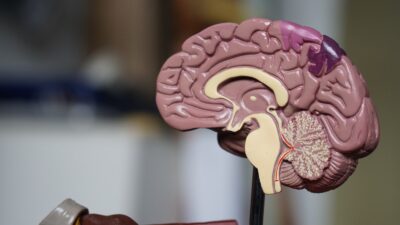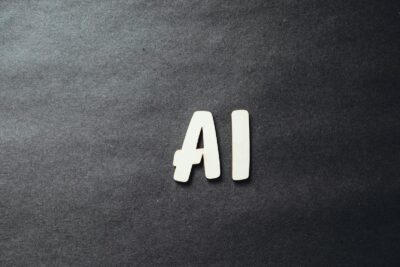The Role of AI in Predicting Disease Outbreaks
Introduction to AI in Health Technology
AI in health tech predicting disease outbreaks is revolutionizing the way public health systems operate, particularly in advanced regions such as Saudi Arabia and the UAE. With the integration of artificial intelligence, healthcare professionals are now better equipped to foresee and manage potential health crises. This transformative technology is enhancing the efficiency and effectiveness of disease surveillance and response systems, which is critical in safeguarding public health.
The use of AI in health technology involves the application of machine learning algorithms and predictive analytics to vast amounts of health data. By analyzing patterns and trends within this data, AI systems can predict disease outbreaks before they occur, allowing for timely interventions. This proactive approach is significantly more effective than traditional reactive methods, which often rely on responding to outbreaks after they have already begun.
In Saudi Arabia and the UAE, where technological advancements are rapidly embraced, the implementation of AI-driven health tech is becoming increasingly prevalent. Cities like Riyadh and Dubai are pioneering the integration of AI in their healthcare systems, thereby setting new standards in public health management and disease prevention.
Predictive Analytics and Epidemiology
Predictive analytics plays a pivotal role in the use of AI for predicting disease outbreaks. By leveraging large datasets that include information on disease incidence, environmental factors, and population movements, AI algorithms can identify early warning signs of potential outbreaks. These insights enable public health officials to take preventive measures, thereby reducing the spread of diseases and minimizing their impact on communities.
In Saudi Arabia, for instance, the Ministry of Health is utilizing AI-powered predictive analytics to monitor and manage public health threats. By collaborating with tech companies and research institutions, Saudi healthcare systems are developing advanced models that can forecast disease outbreaks with remarkable accuracy. This proactive stance is crucial in a region that hosts millions of pilgrims annually, making disease prevention a top priority.
Similarly, the UAE is making significant strides in integrating AI into its health tech infrastructure. Dubai Health Authority is at the forefront of this initiative, employing AI to analyze health data from various sources and predict potential disease outbreaks. The city’s robust digital infrastructure and commitment to innovation provide a solid foundation for these advancements, ensuring that Dubai remains a leader in public health management.
Implementation and Benefits of AI-Driven Health Tech
The implementation of AI-driven health tech involves the deployment of sophisticated algorithms and data analytics platforms that can process and interpret vast amounts of health data. This technology not only predicts disease outbreaks but also helps in identifying the most effective intervention strategies. By providing real-time insights, AI systems enable healthcare providers to allocate resources more efficiently and respond swiftly to emerging threats.
In Riyadh, the King Saud University Medical City is an excellent example of how AI is being used to enhance public health. The institution has integrated AI systems into its health monitoring processes, enabling the early detection of disease outbreaks and the implementation of targeted interventions. This approach has significantly improved the city’s ability to manage public health risks and ensure the well-being of its residents.
Dubai’s approach to AI-driven health tech is equally impressive. The city has established numerous partnerships with leading tech firms to develop and implement AI solutions in healthcare. These collaborations have resulted in the creation of advanced predictive models that are capable of identifying disease patterns and predicting outbreaks. By leveraging these technologies, Dubai is able to maintain a high level of public health security and quickly address any emerging health threats.
Challenges and Future Directions
Despite the significant benefits of AI in health tech, several challenges remain. One of the primary obstacles is the availability and quality of data. For AI systems to be effective, they require access to comprehensive and accurate health data, which can be difficult to obtain in some regions. Additionally, there are concerns about data privacy and security, particularly when dealing with sensitive health information.
To address these challenges, Saudi Arabia and the UAE are investing in robust data infrastructure and implementing stringent data protection regulations. By ensuring that health data is both accessible and secure, these countries are creating an environment conducive to the successful implementation of AI-driven health tech.
Looking ahead, the future of AI in predicting disease outbreaks is promising. Continuous advancements in machine learning and data analytics are likely to enhance the accuracy and efficiency of predictive models. As AI technology evolves, it will become even more integral to public health management, enabling healthcare systems to anticipate and mitigate health threats more effectively.
The Integration of AI in Healthcare Systems
The integration of AI into healthcare systems is not limited to disease prediction; it extends to various aspects of healthcare delivery, including diagnostics, treatment planning, and patient management. AI-powered tools can analyze patient data to provide personalized treatment recommendations, improving patient outcomes and reducing the burden on healthcare providers.
In Saudi Arabia, hospitals are increasingly adopting AI technologies to streamline their operations and enhance patient care. For example, the King Faisal Specialist Hospital & Research Centre in Riyadh uses AI to support clinical decision-making and optimize treatment protocols. This integration of AI into clinical practice is helping to elevate the standard of care and ensure that patients receive the most effective treatments available.
Similarly, in the UAE, healthcare providers are leveraging AI to improve service delivery and patient outcomes. The Cleveland Clinic Abu Dhabi, for instance, employs AI-driven diagnostic tools to enhance the accuracy of medical diagnoses and treatment plans. By integrating AI into their healthcare systems, these institutions are setting new benchmarks in patient care and healthcare management.
Conclusion: The Future of AI in Health Tech
The adoption of AI in health tech for predicting disease outbreaks marks a significant advancement in public health management. By enabling early detection and intervention, AI-driven technologies are transforming the way healthcare systems operate, particularly in progressive regions like Saudi Arabia and the UAE. The continuous evolution of AI and its integration into healthcare systems promise to further enhance the efficiency and effectiveness of public health strategies.
As Riyadh and Dubai continue to lead the way in embracing AI-driven health tech, they set a compelling example for other regions to follow. The commitment to innovation and investment in advanced healthcare technologies in these cities ensures that they remain at the forefront of public health management. The future of AI in health tech is bright, with the potential to significantly improve disease prediction, prevention, and overall healthcare delivery.
—
#AIinHealthcare #DiseasePrediction #HealthTech #PublicHealth #PredictiveAnalytics #Epidemiology #RiyadhHealthcare #DubaiHealthcare #SaudiArabia #UAE #HealthcareInnovation























